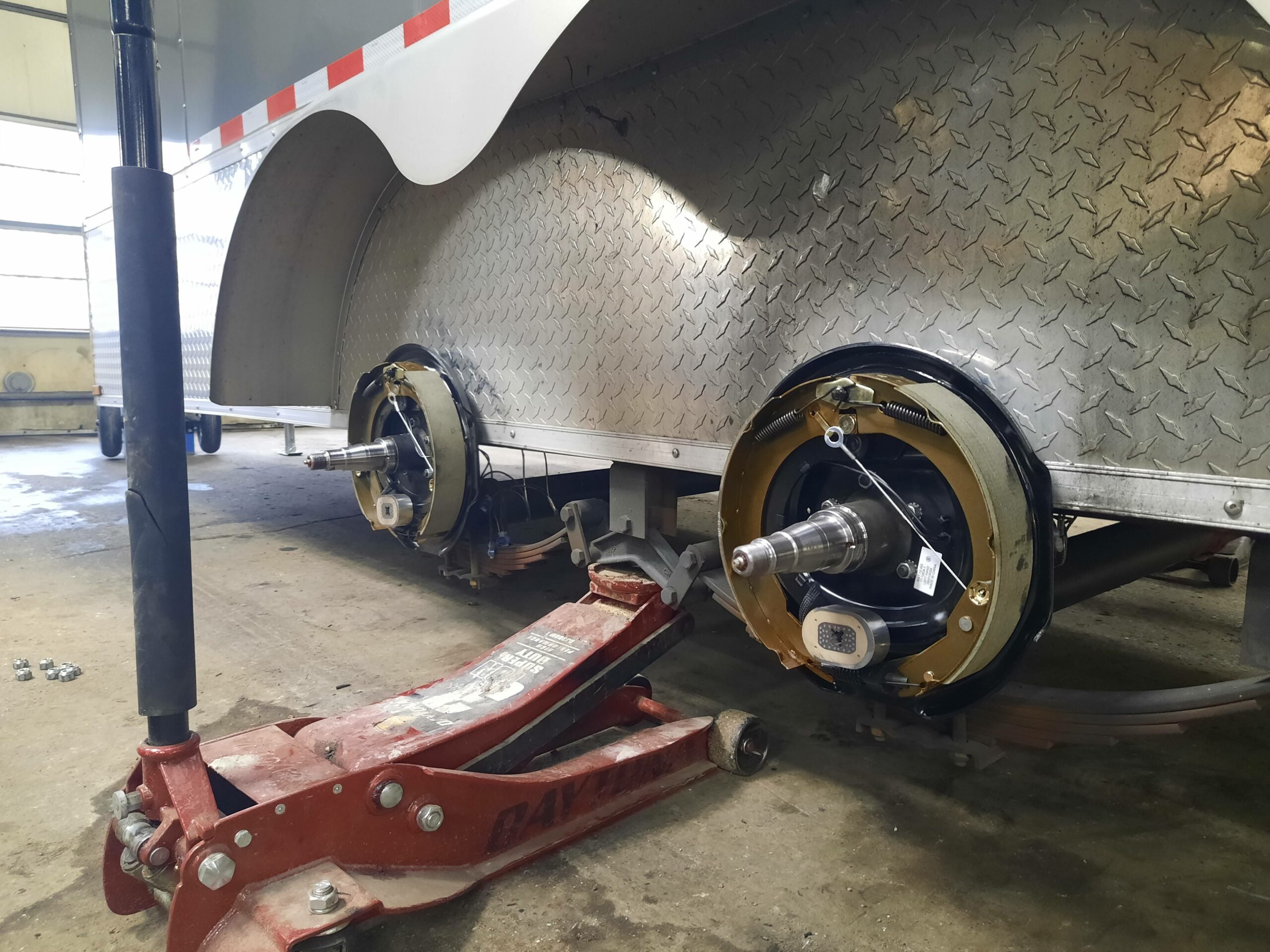For September, we dive into commonly asked questions about trailer axles and trailer axle parts. In this month’s articles, we share two new FAQs each week. Check back weekly for more frequently asked questions about all things related to trailer axles. This article answers the popular question, ‘How often should I replace my trailer axles? This Part 2 article touches on additional factors that may impact the lifespan of your trailer and indicate when it’s time for trailer axle replacement. Click here to read our Part 1 article.
While there are no guarantees when it comes to the life expectancy of any trailer part, we recommend changing your trailer axles every 3-5 years based on your axle usage and other factors mentioned in this article. Annual axle inspections and maintenance will help you get the most life out of your axles and allow them to function properly for years to come.
Similar to any piece of machinery, longevity will depend on the level of care and maintenance over time. Even with the most rigorous maintenance and care schedule, your axles will eventually need to be replaced just from normal wear and tear from daily use. Hauling distance, age, brand, weather conditions, and more can all impact how long your trailer axles last.
Does the weather impact the life of my trailer axles?
Short answer – yes. Weather plays a huge part in the lifespan of your trailer axles. If cared for properly, no matter where you live, the care and maintenance of your axles will play a huge role as well.
There are certain areas of the country with harsher weather elements. The Midwest is prone to harsh winters, cold temperatures, snow, and ice. Because of the excessive moisture year-round, your trailer and its components are more prone to rust and corrosion. If you’re hauling in the Midwest, try to keep your axles dry and clean. Any sort of moisture or ice buildup will immediately trigger rust then lead to corrosion if not cleaned or treated.
While the Midwest has harsh elements, hot temperatures also pose a risk to your trailer’s components. Extreme dry heat in warmer regions can cause spring trailer axles to develop cracks and even dry out the flexible rubber seal if not properly greased. If you live in a hot climate with humidity, the risk of moisture buildup leading to rust is also a concern. If moisture accumulates on your axles and then dirt and other debris also stick to your axles, this will cause rust. With any type of environment, a clean, dry, rust-free axle is always best.
Does longevity differ between axle manufacturers?
Yes. Not all axles are created equal. Different axle brands are built with different types of quality materials. The materials used to build an axle can vary greatly between manufacturers. Always choose an axle supplier you can trust that fully discloses the details about the axle you are buying.
Does hauling distance impact my axles?
As with any piece of equipment, the more it is used, the quicker it wears down. Trailer axles will undergo more general wear over time the longer you are hauling your trailer.
What can I do to extend my trailer axle lifespan?
The age of the trailer is not necessarily a direct indication of the axle’s quality or lifespan. As noted above, the way the axles are cared for and maintained is a much better indication of the axle’s longevity. For example, a used trailer could have well-maintained axles that are replaced every 3 years and are stored inside a temperature-controlled garage. A newer trailer could have daily hauls through rough terrain and bad weather elements, is not taken care of, and axles have begun to rust. If deciding to purchase a used trailer, ask lots of questions about the trailer’s haul history, maintenance, and replacement parts.
Trailer axle replacement by BlueSwift Axles
BlueSwift Axles is here to help you choose the best replacement trailer axle for your hauling needs. You’ll find that torsion axles can wear better than spring axles because they require less maintenance. However, when torsion axles fail, they can be costly to replace. Spring trailer axles have more parts to maintain, but they have durable wear and less expensive components to repair.
